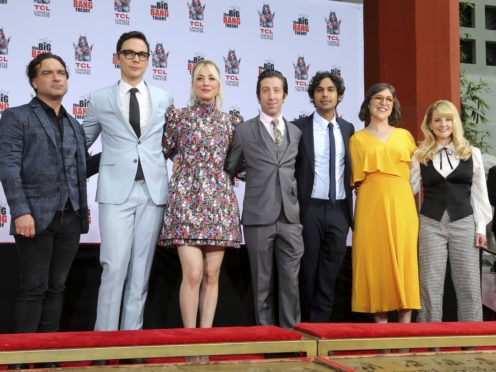Life imitated art when The Big Bang Theory received a shout-out during the announcement for this year’s Nobel Prize in Physics.
The announcement that a trio of scientists had won the physics Nobel started off with an unlikely reference: the opening lines of the popular US television show in which its two main characters — Sheldon and Amy — won the Nobel Prize.
“The whole universe was in the hot, dense state, then nearly 14 billion years ago expansion started,” academy member Ulf Danielsson said at the start of the presentation, using the opening words of the Big Bang theme song.

A Canadian-American scientist and two Swiss scientists won the physics prize for their work in understanding how the universe has evolved from the Big Bang and the blockbuster discovery of a planet outside our solar system.
Goran Hansson, secretary-general of the Royal Swedish Academy of Sciences, said the reference seemed fitting since the series was a “fantastic achievement” in bringing the “world of science to laptops and living rooms around the world”.
It all ended with a Big Bang. ❤️ pic.twitter.com/QQ7T4A0EKV
— The Big Bang Theory (@bigbangtheory) May 17, 2019
The Big Bang Theory, which debuted in 2007 and ended its run earlier this year, overcame early doubts to become a cult classic.
The show was led by a crew of nerdy misfits, all scientists on the west coast of the United States.
During the finale, the show’s friends took one last trip together to support married couple Sheldon, played by Jim Parsons, and Amy, played by Mayim Bialik, after they won the Nobel Prize in physics.
The couple waited anxiously by the phone while friends prank-called them before receiving the actual decision.
Mr Hansson said he hoped the fans of the show liked this year’s Nobel Prizes.
“I hope that Sheldon and Amy are not too disappointed today.”
